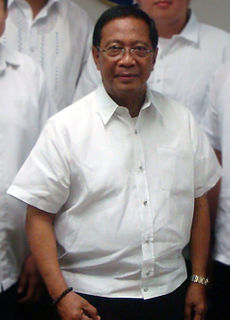A Quote by Abhijit Banerjee
Will we make all poverty history? No. But can we solve some of these extreme and egregious forms of poverty? I think yes, and we should.
Related Quotes
Capitalism with near-full employment was an impressive spectacle. But a growth in wealth is not at all the same thing as reducing poverty. A universal paean was raised in praise of growth. Growth was going to solve all problems. No need to bother about poverty. Growth will lift up the bottom and poverty will disappear without any need to pay attention to it. The economists, who should have known better, fell in with the same cry.
...let us recognize that extreme poverty anywhere is a threat to human security everywhere. Let us recall that poverty is a denial of human rights. For the first time in history, in this age of unprecedented wealth and technical prowess, we have the power to save humanity from this shameful scourge. Let us summon the will to do it.
The service of India means the service of those teeming millions steeped in poverty, ignorance and disease. To see that in my lifetime we can soften these harsh edges of extreme poverty and unleash a new economic and social revolution which will bring out the latent creativity and entrepreneurial spirit of our people, I think that's what I feel, I think.
It is this idea 'decency' should be attached to wealth -and 'indecency'' to poverty - that forms the core of one strand of skeptical complaint against the modern status-ideal. Why should failure to make money be taken as a sign of an unconditionally flawed human being rather than of a fiasco in one particular area if the far larger, more multifaceted, project of leading a good life? Why should both wealth and poverty be read as the predominant guides to an individual's morals ?
The form of law which I propose would be as follows: In a state which is desirous of being saved from the greatest of all plagues-not faction, but rather distraction-there should exist among the citizens neither extreme poverty nor, again, excessive wealth, for both are productive of great evil . . . Now the legislator should determine what is to be the limit of poverty or of wealth.
We certainly would resolve the problems of the charities that are working in areas where they can do the most good. So if you consider that the U.S. foreign aid budget is 30 billion, yes, we could make a major contribution to reducing global poverty, start to deal much better with some of the other big environmental problems that the world faces. So I think we could solve a lot of problems.
By repealing the Child Poverty Act, which forced governments to take real action to tackle child poverty, this government brings a proud chapter of British history to an undignified end. In future the government will measure child poverty not by looking at whether they have any money, but by looking at their so-called 'life chances.'



































